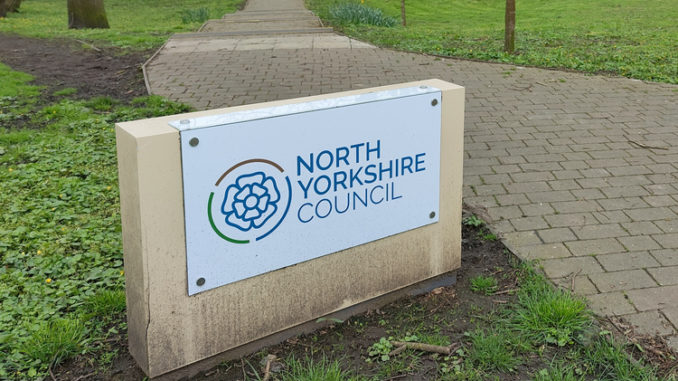
A flagship scheme to hand extra powers to parishes following the creation of England’s largest council by area will not benefit the vast majority of the area, it has been claimed.
Opposition groups on Conservative-run North Yorkshire Council have expressed disappointment after it emerged just 11 town councils and one parish council, out of several hundred across the county, had submitted bids to manage more services in their area as part of what the authority has titled “double devolution”.
The offer to hand powers to parish authorities was initially made in former North Yorkshire County Council’s submission to government for the establishment of a unitary council amid concerns that decision-making for local services would become too far removed following the abolition of district and borough councils.
An officer’s report to a meeting of North Yorkshire Council’s executive on Tuesday emphasises how the council has pledged to place local communities at its heart while covering England’s largest county, and double devolution would be “a key platform to achieving this aim”.
However, the report states double devolution applications would need to have a solid business case and be cost neutral to the unitary council.
It states of the 12 expressions of interest submitted by town and parish councils, three did not meet the council’s criteria, including the only one from a parish council.
The report states Little Ouseburn Parish Council applied to manage grass cutting outside some cottages, but the parish “did not evidence legal competence”. Stokesley Town Council’s bid to manage off-street parking was rejected as North Yorkshire Council stood to lose income.
Double devolution bids which are set to be approved include Filey being given the power to manage its public benches, Northallerton and Thirsk and Knaresborough town councils their markets, Richmond Town Council being handed the management of Friary Gardens and Malton Town Council its public toilets.
Elsewhere, Skipton and Whitby town councils look set to be told their bids to manage services such as toilets and parks need “amendments”, while separate project teams will be established to work with Ripon and
Selby town councils to shape their bids due to their “ambition and complexity of the expressions of interest”.
Ahead of the meeting, the authority’s executive member for corporate services, Councillor David Chance, said the unitary authority was looking to “progress cautiously, learning from the experience and developing best practice”.
He said: ““These proposed pilots are just the start of the process, and the hope is that more will be introduced throughout North Yorkshire in the future.”
However, the authority’s Labour group leader Councillor Steve Shaw Wright said for the vast majority of North Yorkshire double devolution was “just lip service” and “managing a couple of flower beds does not require a fantastic business case”.
Coun Shaw Wright said: “It was a nice soundbite, but outside some of the larger towns there’s not a lot to double devolve down.
“The issue across the whole of North Yorkshire is that there is only a handful of sizeable councils that could take on and run services. The vast majority of other parishes either haven’t got the capacity to do it, are reluctant to put the precept up to fund it or there isn’t actually anything there to run.
“It was not a particularly well thought through proposal looking at the parishes and towns we have in North Yorkshire. Most parishes are very small.”
When asked if he believed double devolution was proving a success in North Yorkshire, Liberal Democrat group leader Councillor Bryn Grifths said: “Not at this stage, it has not taken off at all. I’m very disappointed.
“I’m not sure how much engagement the towns and parishes have had or if they understood what was involved. Having said that it is up to North Yorkshire Council to equip towns and parishes to make it happen.
“I feel Stokesley put a good case forward and North Yorkshire Council’s response has been a bit of a slap in the face.”


Be the first to comment